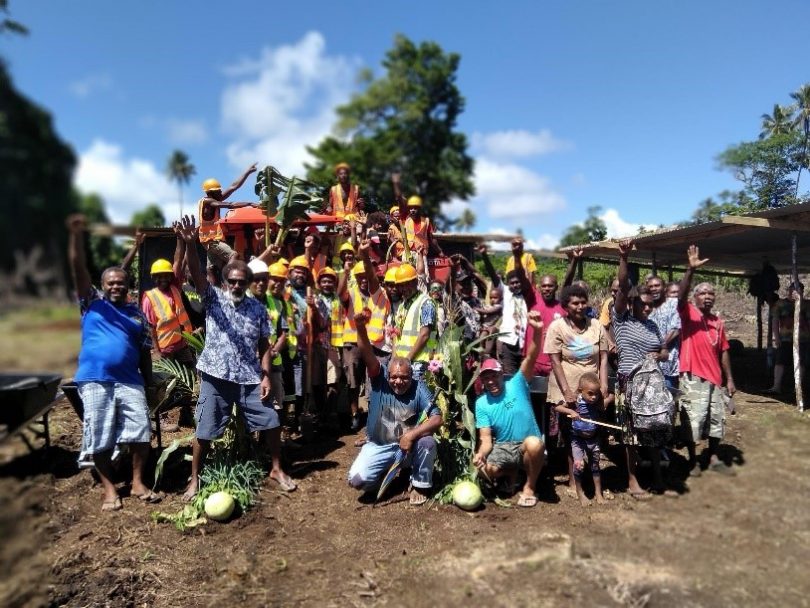The Vanuatu Skills Partnership is a nationwide initiative that aims to improve human resource development for service delivery reform in Vanuatu. This blog describes the work of the Partnership in using the vector of skills delivery to empower local leaders to drive more effective provision of government services in the northern province of Torba.
Funded by the Australian Government for over a decade, the Partnership has progressively become a stand-out example of a locally led reform movement, and is now co-funded through national budget lines. Provincial skills centres that were originally established by the Partnership have now been restructured into the Ministry of Education and Training as its decentralised service delivery arms.
This change has enabled the Partnership to play a central role in the Government of Vanuatu’s decentralisation agenda, which “brings government closer to the people”. This has been particularly important in recent years, as the government supports recovery from the devastating economic and social impacts caused by COVID-19 and Tropical Cyclone Harold, which caused extensive damage to several islands of Vanuatu in April 2020.
The Partnership also supports the growth and networking of a cohort of leaders, committed and equipped to contribute to broad-based governance reform for the achievement of national development goals – stability, sustainability and prosperity. This includes a strong focus on empowering ni-Vanuatu leaders at all levels of government to improve coordination and planning, so that people in local communities have better access to services.
In Vanuatu’s northernmost province of Torba, through the work of the Partnership, significant improvements have been seen over the last 12–18 months in terms of capacity for decentralised service delivery. In the past, Torba has struggled to attract the attention of the national government and human and financial resources.
Torba is located far away from major domestic and international markets. This means that transport costs associated with the sale of goods produced in Torba are high, reducing the competitiveness of local producers. The people of Torba have also had limited access to formal skills training opportunities.
In mid-2020, after the onset of the COVID-19 pandemic and following Tropical Cyclone Harold, the Torba Skills Centre significantly shifted its strategic focus. Rather than focusing purely on the delivery of skills training and workshops, the centre began supporting new infrastructure to improve access to markets for local producers, such as supply hubs and market houses, with skills development integrated into these projects.
The strategic shift also included new initiatives, such as Farm to School and Farm to Hospital, which are helping farmers to gain access to new markets for their produce, and encouraging government agencies such as Agriculture, Livestock, Fisheries and Education to work together to deliver improved student and patient outcomes.
A critical part of this strategic shift has been empowering local leaders to take charge of the projects. This has involved the delivery of leadership and adaptive management training for motivated community leaders to play key roles in planning, managing and coordinating the new projects.
The projects included the construction of new market houses in Gaua and Sola, and a new area council office in Gaua. These projects incorporated the delivery of a Certificate II in Building Construction.
Another project delivered plumbing training to upskill local plumbers and community representatives in water supply maintenance. This training supported the installation of an ecological purification water supply system in Vatrata, Vanualava. The key parties involved were the Department of Water Resources, Torba Provincial Government Council, the Australia Pacific Training Coalition, Anglican Churches of Melanesia, the Vocational Educational Technical School and the local community.
Mr Philemon Ling, Torba Provincial Government Training Board Chairman, said:
The plumbing training held in Vatrata for village plumbers and the water committee alongside the implementation of the water system was really important. Similar training has been delivered in the past but without the implementation of a water system trainees have not had the opportunity to apply their new knowledge and skills.
Through these integrated projects, the Torba Skills Centre has been able to facilitate the delivery of nationally accredited skills training in one of the most remote areas of Vanuatu. This has enabled trainees to start their own small businesses and gain employment.
There is a strong sense of local ownership, and evidence of coordination across different area councils for projects being implemented in Torba. There is also a much stronger, shared understanding of the need for ongoing monitoring and evaluation of development projects, and the importance of promoting sustainability. Mr Steward Vores, Mota Lava Area Council Administrator, explained:
Partnership coalitions facilitated by the Torba Skills Centre are working to measure progress and results achieved, identify challenges and how they can be addressed, and consider how projects can become sustainable business models or entities.
The real progress in Torba clearly demonstrates the value of the decentralised model of locally-led provincial skills centres, which are used to catalyse and support sub-national action for improved delivery of government services in remote areas.



Very good informative information – Skills in partnership building bridge between communities outreach development programs.